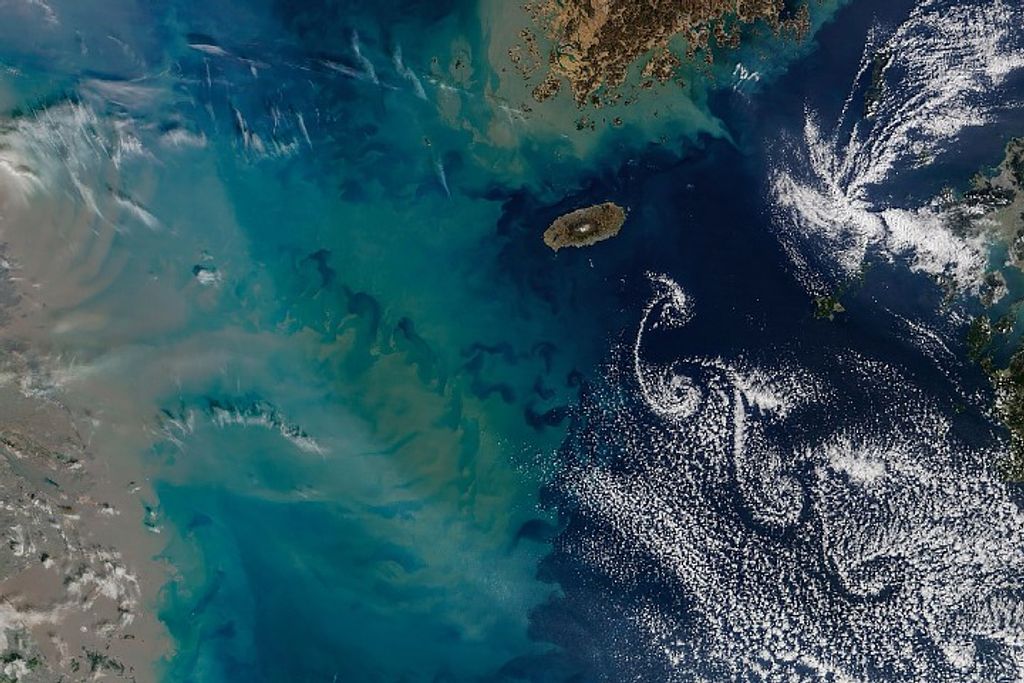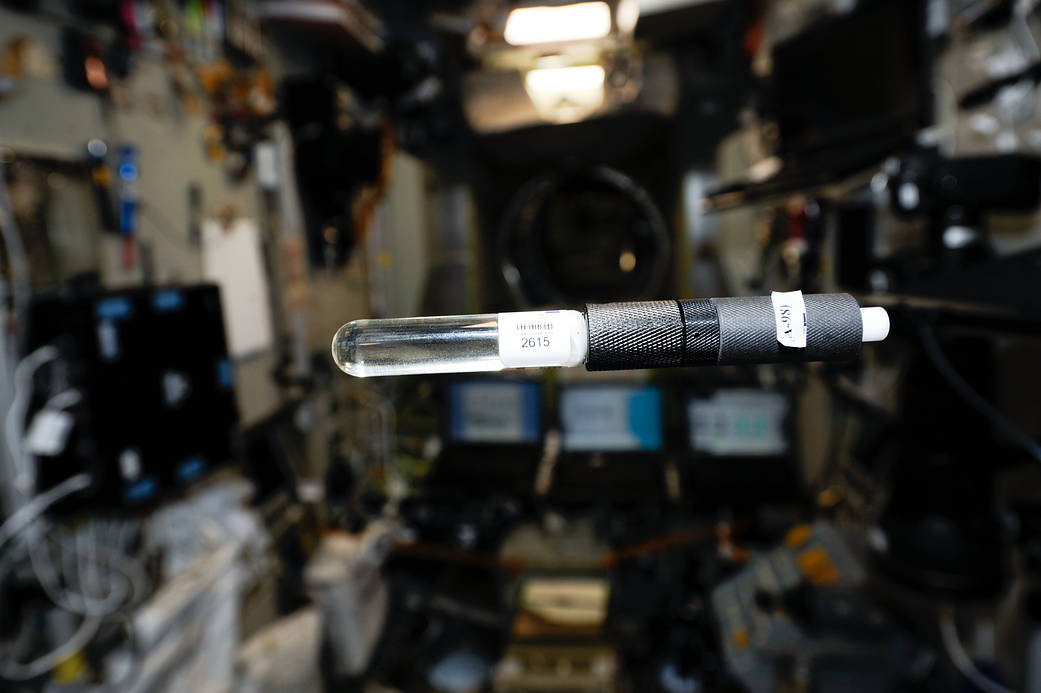In this image, one of the radiation detectors for the Radi-N2 experiment floats in the space station. This device will help researchers explore the radition risk to humans in space.
Neutrons make up a significant part of the radiation exposure in low-Earth orbit, but have not been well characterized. Radi-N2, a Canadian Space Agency investigation, uses bubble detectors to better characterize the neutron environment on the space station, helping to define the risk it poses to crew members. It continues a previous investigation, Radi-N1, and repeats measurements in the same or equivalent locations aboard the space station. Measuring the average dose in different segments of the space station supports development of a radiation protection plan for future missions. During the week of Aug. 17, 2020, crew members retrieved detectors for collection of dose measurements.
Image Credit: NASA


























